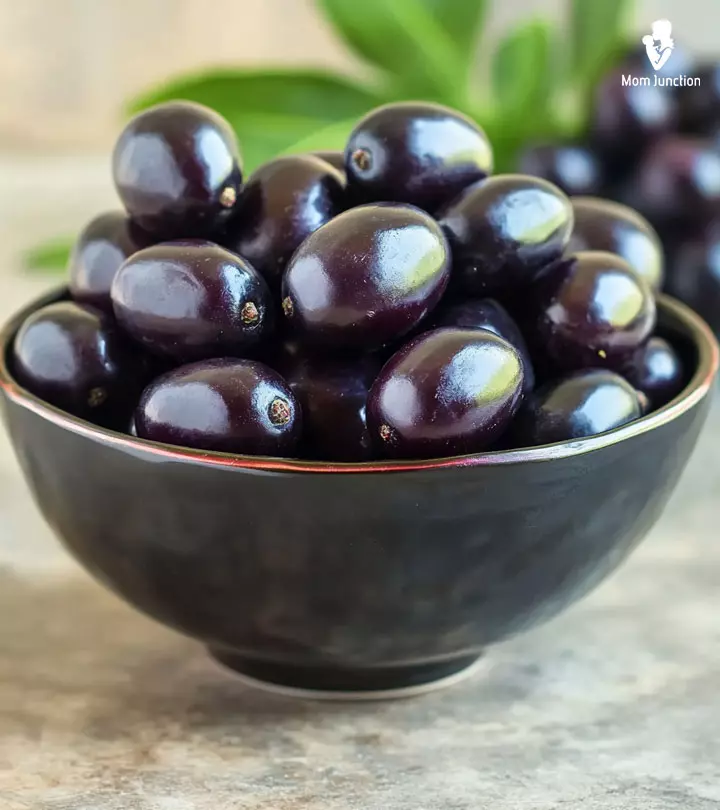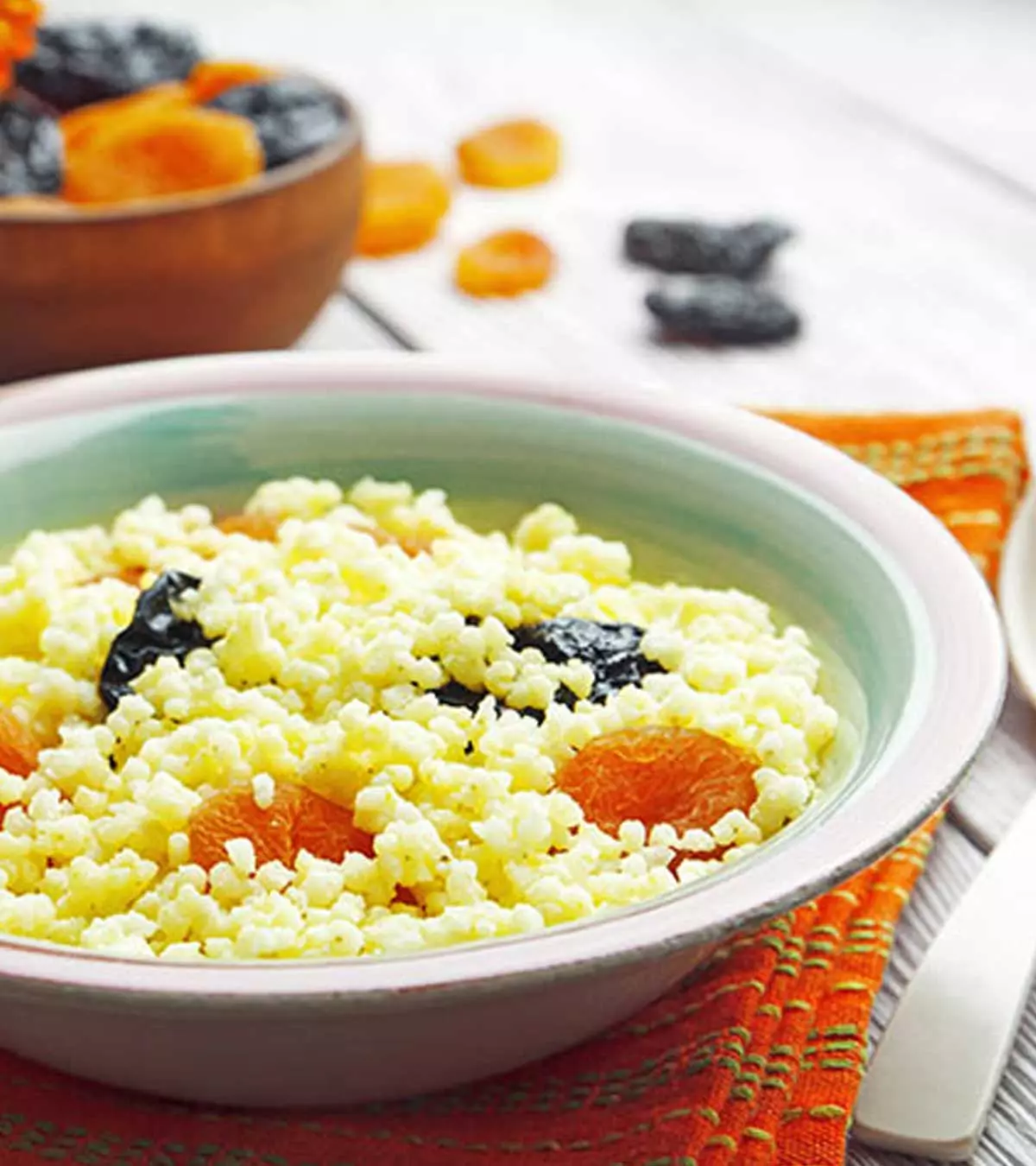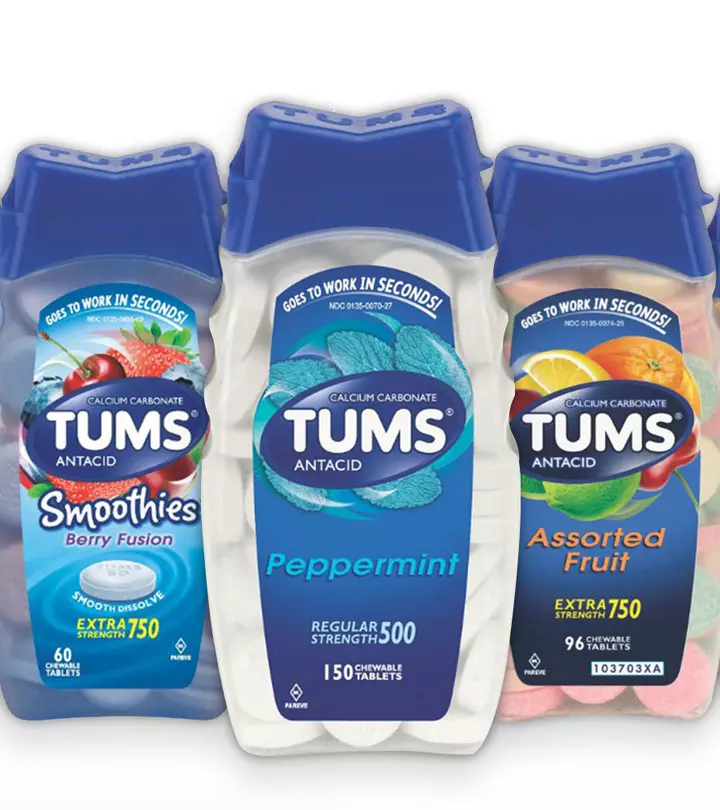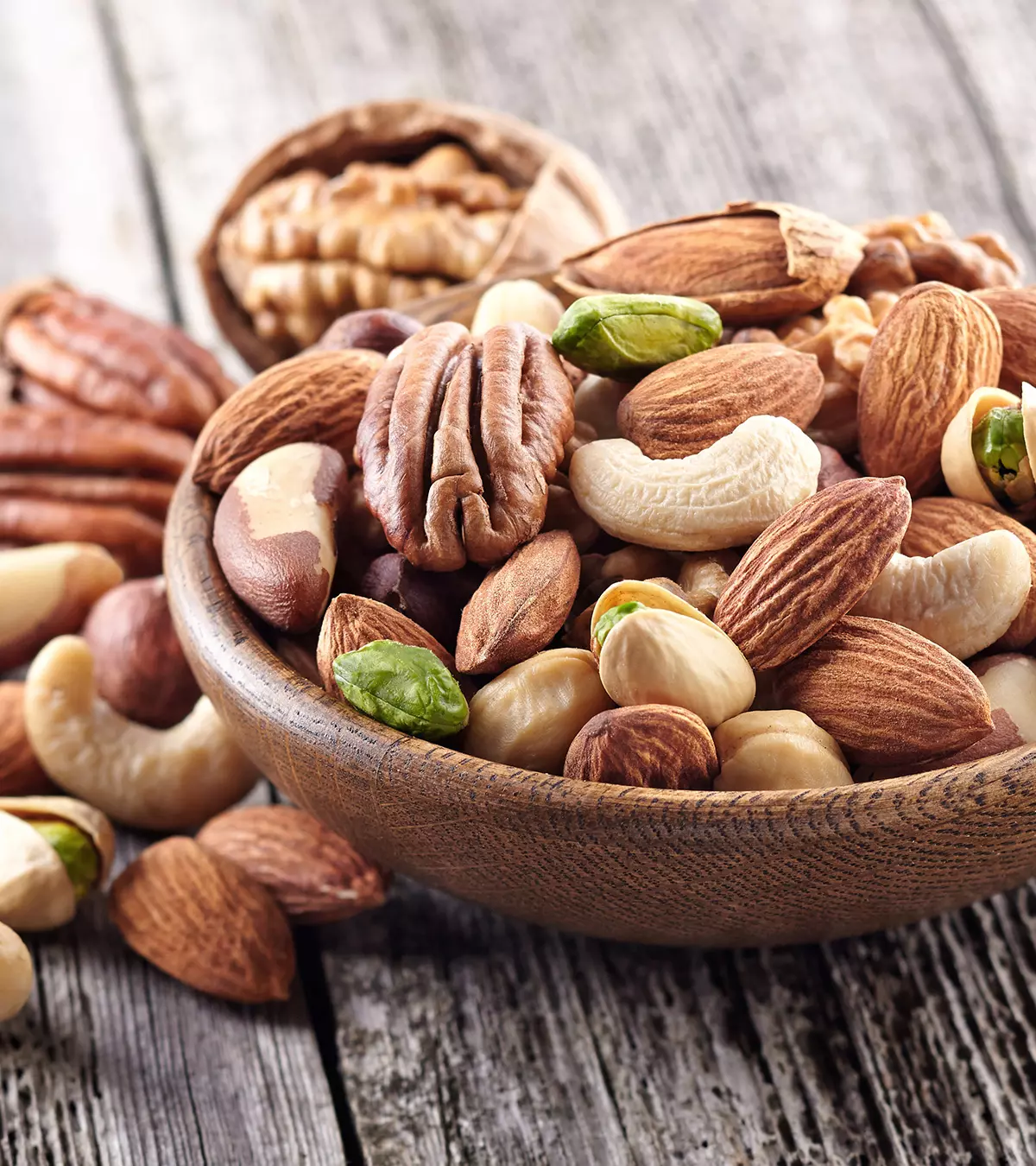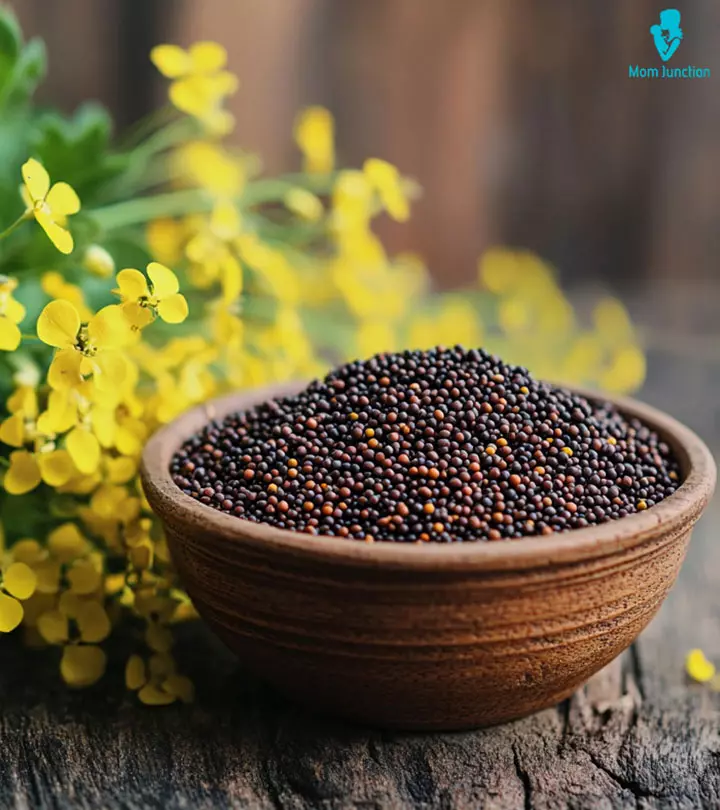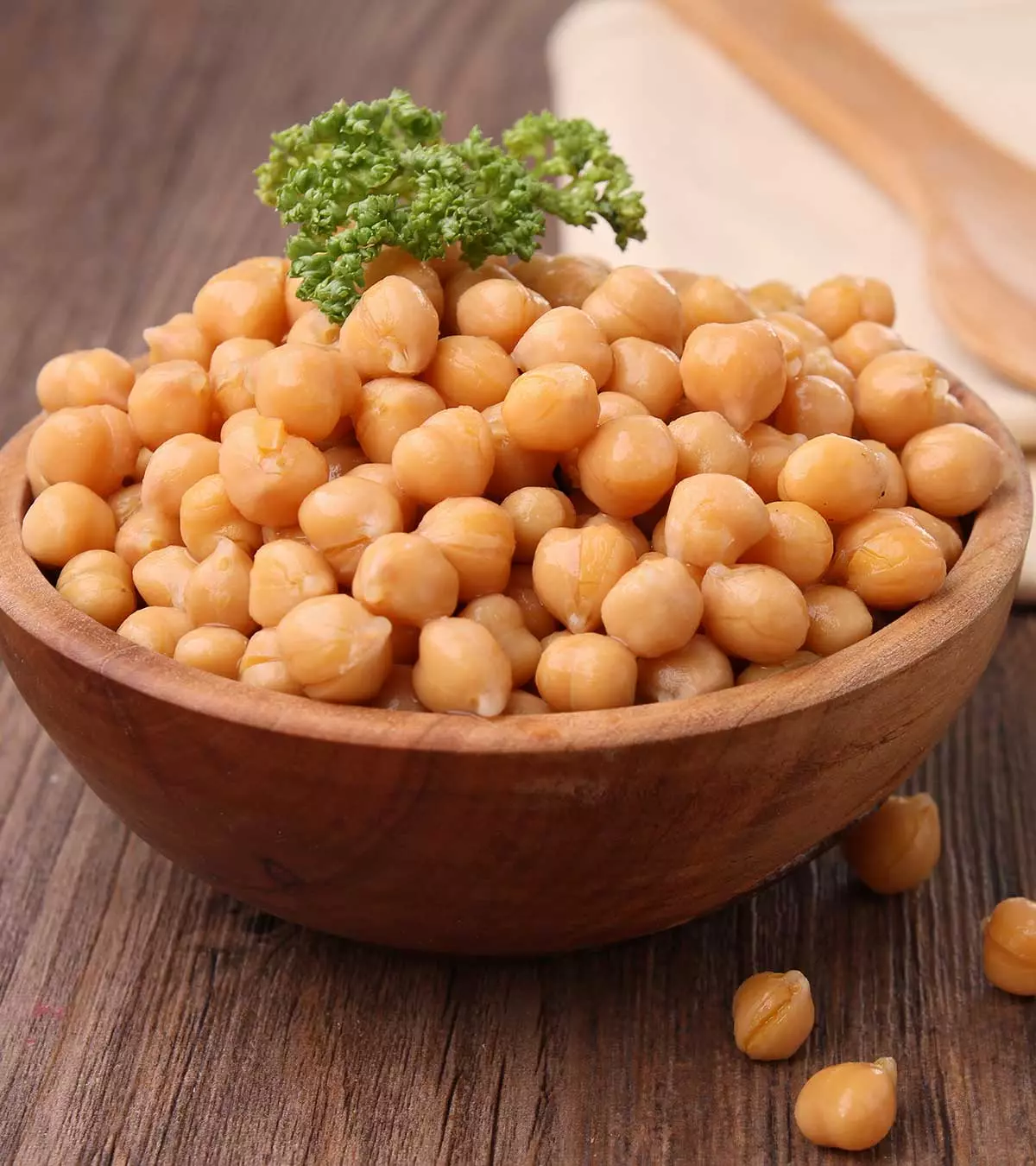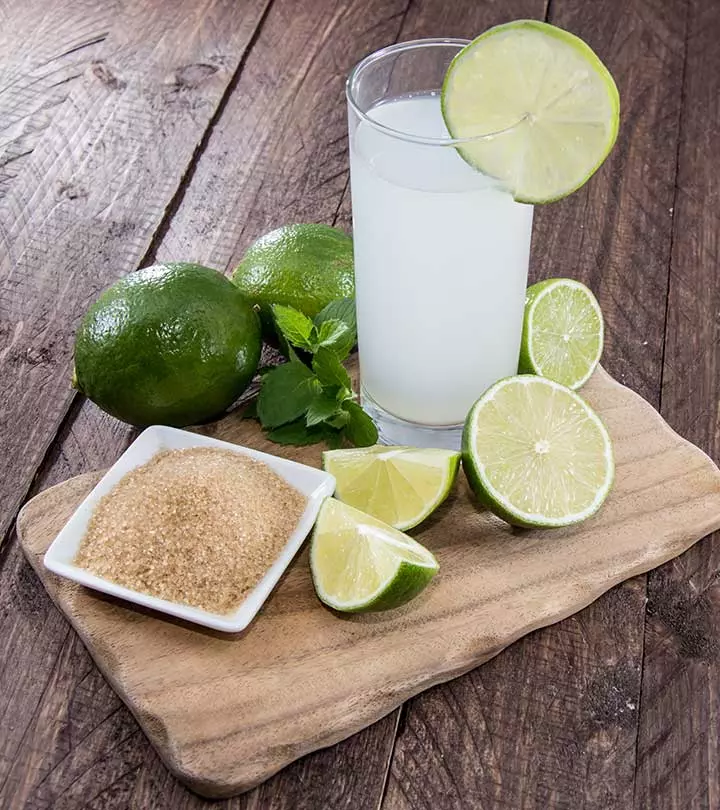
Image: ShutterStock
Pineapple contains various essential nutrients and has been associated with various health benefits, including improved digestion and immunity. However, if you are a pregnant woman, you might be apprehensive about the safety of pineapple while pregnant. While some believe that eating pineapples is safe, others consider it a strict no during pregnancy. Food cravings during pregnancy are not uncommon. So, if you enjoy eating pineapples and can’t resist its enticing scent, you might want to read on to know the safety and risks of eating pineapples during pregnancy and learn how much pineapple you should eat when pregnant.

Key Pointers
- Pineapple contains the enzyme bromelain, which may cause abnormal bleeding and lead to premature labor or miscarriage.
- Consuming pineapple occasionally and in moderation is unlikely to have harmful effects on a pregnant woman.
- Pineapple is a source of vitamin B6, which may relieve morning sickness, and vitamin C, which enhances collagen production.
- Overconsumption of pineapple can lead to potential side effects such as diarrhea and gastric discomfort, as well as allergic reactions.
Is Pineapple Safe To Eat During Pregnancy?

In India and other Asian countries, the fruit is categorized under sour and hot foods that can induce miscarriage, uterine contractions, and preterm labor (1) (2). It is a taboo in these regions to eat pineapple, especially in the first trimester.
Pineapple contains the enzyme bromelain that thins the blood, breaks the clots, and reduces blood clot formation. This ability of bromelain can break down proteins and cause abnormal bleeding leading to early labor or miscarriage.
However, Integrative MedicineiA form of medical care that combines conventional modes of treatment, lifestyle changes, and evidence-based complementary therapies. (2018) observes that there are “no known risks associated with pineapple during pregnancy”. It also observes that bromelain is present in the fresh fruit, but the canning process destroys it (3).
Therefore, an occasional cup of ripened pineapple pieces (preferably the canned ones) or a glass of juice may not be harmful during pregnancy (4). However, if your doctor suggests against eating pineapple, then it is good to follow their suggestion as they know your case better than anyone else.
How Much Pineapple Is Safe To Eat During Pregnancy?
One cup of pineapple is safe to consume as it offers the recommended amount of vitamin C for a pregnant woman. Pregnant women require 80 to 85mg of vitamin C (5), and one cup of pineapple provides 78.9mg (6).
 Nutritional fact
Nutritional factWhy You May Eat Pineapple During Pregnancy

Pineapple has vitamins, minerals, fiber, and water. It contains high dietary fiberiA type of carbohydrate consumed by humans to maintain a healthy digestive system. and low saturated fats.
- Vitamin C (ascorbic acid) boosts the immune system and promotes collagen production (that is responsible for the growth of the baby’s skin, bones, cartilage, and tendons) (7). Half a glass of pineapple juice contains about fifty percent of the vitamin C dosage that an average adult requires (18).
- Vitamin B1 (thiamine) helps in proper muscle functioning, healthy nervous system, and heart (8).
- Vitamin B6 (pyridoxine) is essential for several body functions and treats morning sickness (9).
- Dietary fiber eases constipation (10) that is common during early pregnancy.
- Folic acid helps prevent birth-defects of the brain and spinal cord (11).
- Bromelain helps treat edemaiSwelling in various parts of the body due to accumulation of fluids in body tissues or cavities. (12), a common complaint during pregnancy
- Bromelain that thins the blood (13) can help lower high blood pressure (14). According to a study by the US Centres for Disease Control and Prevention (US CDC), the estimated prevalence of hypertensive disorders among delivery hospitalizations has increased from 13.3% to 15.9% between 2017 and 2019 (19).
- Trace minerals such as manganese, copper, and iron aid in bone development, enzyme production, blood pressure regulation, and maintenance of a healthy heart rate (18).
You may have a cup of canned or fresh pineapple or pineapple juice if you enjoy the fruit and get these benefits too. However, you don’t have to eat pineapple just to get these benefits. Eat the fruit only if you enjoy it. Otherwise, you may find alternative vegetable and fruit sources that provide the required nutrients.
Pineapple plants are rich in phytonutrients, and even if some metabolites vary between species, some might remain present in all types of pineapple. These metabolites, which were all found in leaf samples from seven different pineapple varieties, are described in the graph below. They include flavonoids, lipids, phenolic acids, amino acids and derivatives, alkaloids, nucleotides and derivatives, lignans and coumarins, terpenoids, tannins, and quinones. According to the results, all seven types of pineapple were high in flavonoids (198 compounds), lipids (131 compounds), and phenolic acids (116 compounds).

Bioactive compounds in pineapple leaves
Source: Integrative transcriptomic and metabolomic analysis of D-leaf of seven pineapple varieties differing in N-P-K% contents; BMC Plant BiologyWhat Could Be The Risks Of Eating Pineapple During Pregnancy?

Registered dietitian Alicia Chacha Miller says, “ Despite the myths, there’s no strong evidence that eating pineapple in normal amounts causes miscarriage or triggers labor. However, some people might notice mouth irritation or acid reflux if they eat a lot of it, due to its natural enzymes. If you’re unsure or dealing with discomfort, it’s always best to check in with your provider.”
Though moderate consumption of pineapple causes no side effects, you may have some adverse effects if you are having a sensitive stomach, eating pineapple in large amounts, or are allergic to the fruit.
The acids in the fruit could cause acid refluxiIt refers to the backward flow of stomach acids into the esophagus. or heartburn during pregnancy. You should avoid the fruit if you are already having peptic ulcer diseaseiA disease characterized by the formation of open sores in the inner lining of the stomach. or gastritisiA common term for a group of conditions that causes inflammation to the stomach lining. . Furthermore, consuming ripe pineapple cores in excess can cause fiber balls in the digestive tract which may irritate gut lining (18).
Eating the fruit or consuming its juice in large quantities could also lead to:
- Diarrhea and gastric discomfort due to bromelain and citrus content.
- Tenderness or swollen tongue, cheeks, lips, and esophagus.
- Risk of diabetes from the excessive sugar content in the ripe fruit.
- Dental problems due to the acidity in the fruit
A study published in the International Journal of Nutrition and Food Sciences states, “The fruit acids in pineapple can have an aggressive, corrosive effect on certain substances. In the body, the gums and tooth enamel are at particular risk, and eating too much pineapple may contribute to gingivitis and cavities (18).”
If you are allergic to pineapple, you may have allergic symptoms such as skin reactions, swelling or itching in the mouth, runny nose or congestion, and asthma.
These reactions are similar to the allergic reactions of latex or pollen and occur soon after eating pineapple.
Therefore, to avoid any of these above effects, you should be eating the fruit in moderation.
How Much Pineapple Should You Eat To Induce Labor?
Pineapple is believed to induce labor if you consume in high amounts. Bromelain is said to soften the cervix and help induce labor (3). However, what quantity of it can induce labor is not known. There are no studies on humans on this. Some research says that pineapple’s effect on labor may be due to its stimulating property of sugars and fiber in the fruit.
Ways To Include Pineapple In Your Pregnancy Diet
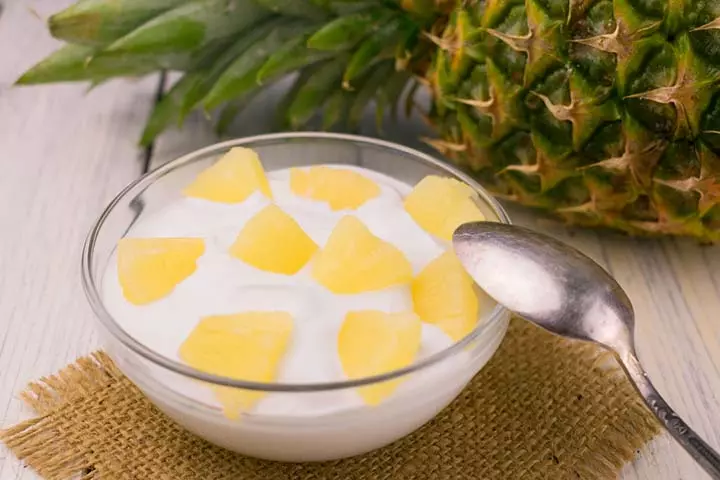
Some ideas for eating pineapple:
- One cup of pineapple slices is a simple way to add the fruit to your diet.
- Add diced pineapple to grilled pork chops for a strong taste.
- Top chicken spinach salad or grilled chicken sandwich with sliced pineapple.
- Toss fresh pineapple chunks into yogurt and have it in the morning.
- Blend into a smoothie with other fruits, such as apples and bananas, for a scrumptious treat to meet your pregnancy’s hydration needs.
- Place big chunks on kebabs made of veggies or meat.
- Add diced fruit to a salad.
- Chop pineapple to make salsa.
- Add to cakes, cookies, or tarts.
Frequently Asked Questions
1. Can pineapple affect my baby’s growth and development?
No scientific studies demonstrate a significant effect on a baby’s growth and development. Moderate consumption of nutrient-rich pineapple upon approval from a doctor may confer health benefits to both mother and the fetus.
2. Can pineapple affect my baby’s taste preferences?
Eating any food item, including pineapple, in significant quantities may influence a baby’s taste preferences. As per a study, flavors from the mother’s diet can transfer to the amniotic fluid and influence its taste during pregnancy. As a result, exposure to these flavors in the womb may increase a baby’s acceptance of similarly flavored foods when they are reintroduced during infancy (15).
3. Is pineapple safe during the first trimester?
Pineapple is usually considered a labor-inducing fruit. Thus, it is believed in many cultures that eating pineapple in the first trimester may cause miscarriage. However, there is no scientific evidence to support this. Still, it is advised to limit the consumption of pineapple and consult your doctor when pregnant (17).
Being skeptical about the foods you consume during pregnancy is natural since you want to ensure your baby’s safety. Since certain foods are unsafe for pregnant women, you may wonder whether consuming pineapple during pregnancy is safe. Although there may be a certain stigma surrounding the fruit, studies show it causes no serious side effects in pregnant women. Consuming the recommended amount of pineapple in pregnancy can offer you and your baby different health benefits. However, you should consult your ob/gyn before consuming such foods to prevent adverse reactions.
Infographic: Eating Pineapple With Gestational Diabetes
Pineapple has a glycemic index of 58 (moderate) and a glycemic load of 6 (low). Health experts recommend people with diabetes consume pineapple in moderation. Our infographic shares various ways moms-to-be with gestational diabetesiA condition characterized by insufficient production of insulin in pregnant women. can safely include pineapple while keeping their sugar levels in control. Illustration: Momjunction Design Team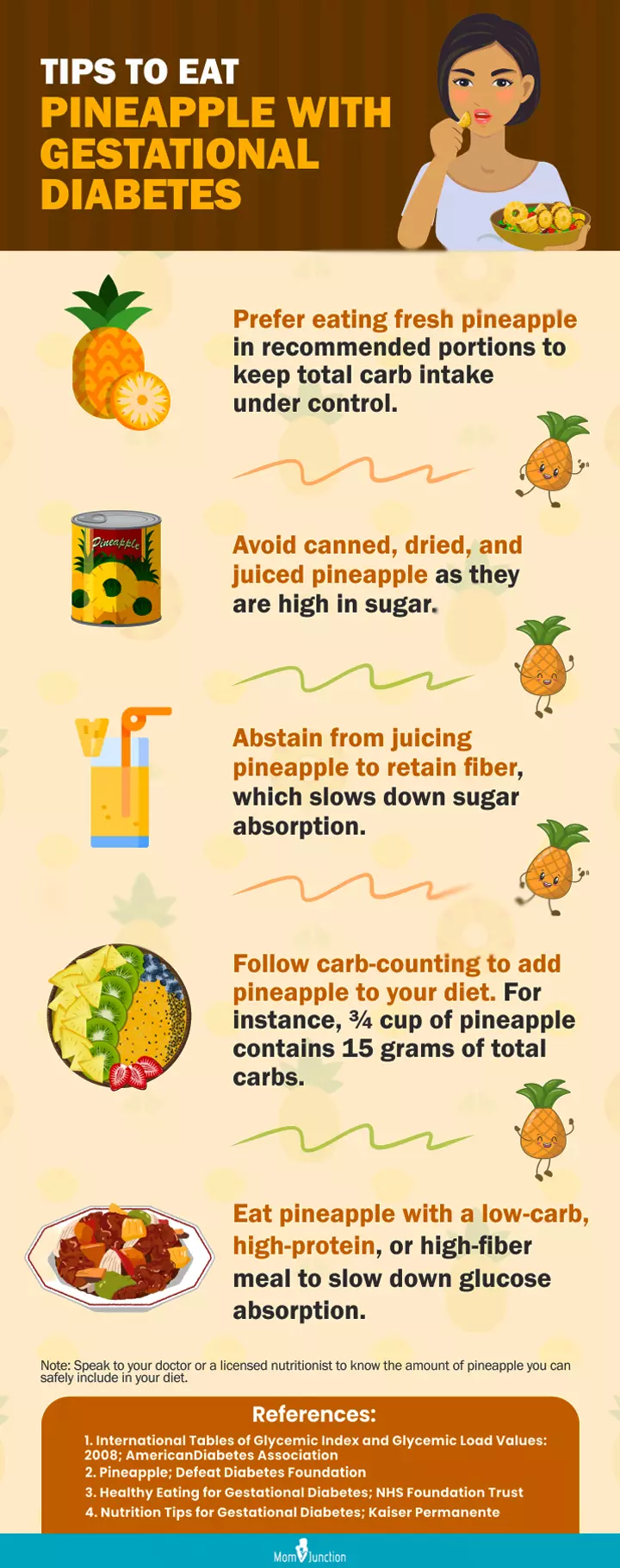
Illustration: Pineapple During Pregnancy: Is It Safe & Will It Trigger Labor?

Image: Dall·E/MomJunction Design Team
References
1. Maznorila Mohamad and Chong Yee Ling; Food taboos of Malay pregnant women attending antenatal check-up at the maternal health clinic in Kuala Lumpur; Integrative Food, Nutrition and Metabolism
2. Sana Sarfaraz, et al.; Fruits and vegetables contraindicated in pregnancy: Myths or reality; World Journal Of Pharmacy And Pharmaceutical Sciences
3. D. Jill Mallory, Chapter 53 – Postdates Pregnancy, Integrative Medicine (Fourth Edition), 2018
4. Adam Fourney et al.; Exploring time-dependent concerns about pregnancy and childbirth from search logs; The Pennsylvania State University
5. Vitamin C; NIH (2011)
6. Pineapple, raw; Basic Report 09266; USDA
7. Key nutrients during pregnancy; Missouri Department of Health and Senior Services
8. Thiamine (B1); Winchester Hospital
9. Top 12 foods to beat morning sickness naturally; American College Of Healthcare Sciences
10. Devinder Dhingra et al.; Dietary fibre in foods: A review; J Food Sci Technol (2012)
11. Folic acid: The vitamin that helps prevent birth defects; New York State Department of Health (2007)
12. Varicose veins; Winchester Hospital
13. Gene Bruno; Bromelain; Huntington College of Health Sciences (2009)
14. Md. Farid Hossain et al.; Nutritional value and medicinal benefits of pineapple; International Journal of Nutrition and Food Sciences (2015)
15. Joanne M Spahn et al.; Influence of maternal diet on flavor transfer to amniotic fluid and breast milk and children’s responses: a systematic review; The American Journal of Clinical Nutrition (2019)
16. The Many Health Benefits of Pineapple; Cleveland Clinic
17. What To Eat And What Not To Eat When Pregnant; OSF HealthCare
18. Md. Farid Hossain et al.; Nutritional Value and Medicinal Benefits of Pineapple; International Journal of Nutrition and Food Sciences (2015)
19. Hypertensive Disorders in Pregnancy and Mortality at Delivery Hospitalization — United States, 2017–2019; CDC
Community Experiences
Join the conversation and become a part of our nurturing community! Share your stories, experiences, and insights to connect with fellow parents.
Read full bio of Dr. Sangeeta Agrawal
- Alicia Chacha Miller is a registered dietitian specializing in maternal and pediatric nutrition. She holds an MS in Nutrition Science from the University of Southern California and founded Cardamom Nutrition.
 Alicia Chacha Miller is a registered dietitian specializing in maternal and pediatric nutrition. She holds an MS in Nutrition Science from the University of Southern California and founded Cardamom Nutrition.
Alicia Chacha Miller is a registered dietitian specializing in maternal and pediatric nutrition. She holds an MS in Nutrition Science from the University of Southern California and founded Cardamom Nutrition.
Read full bio of Swati Patwal
Read full bio of Rebecca Malachi
Read full bio of Aneesha Amonz







